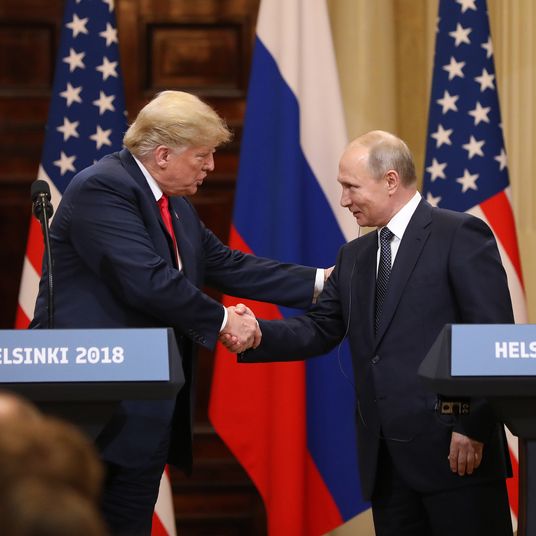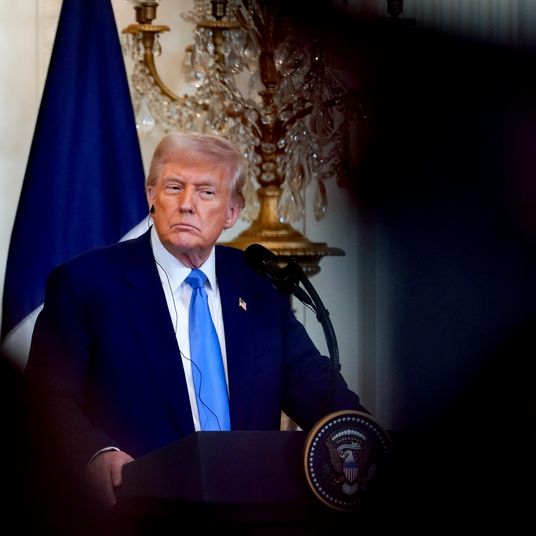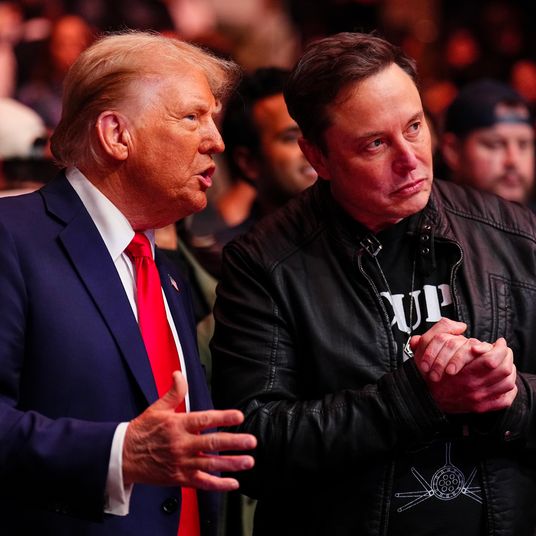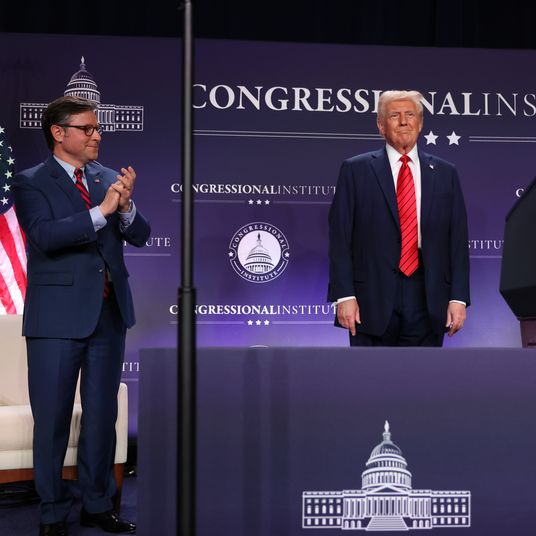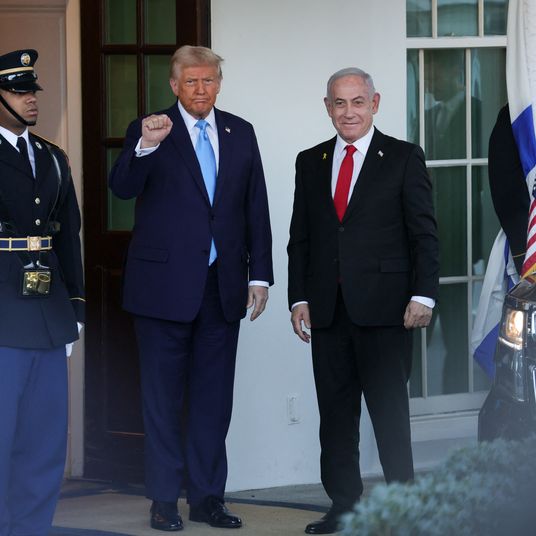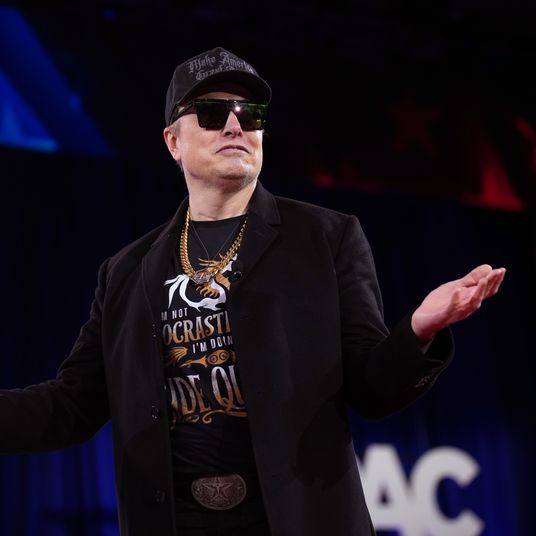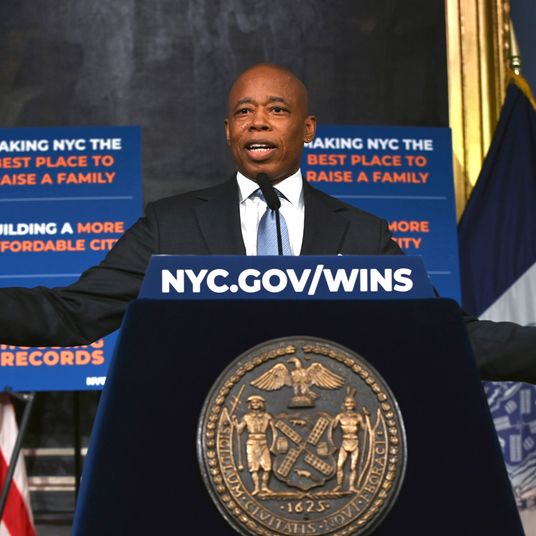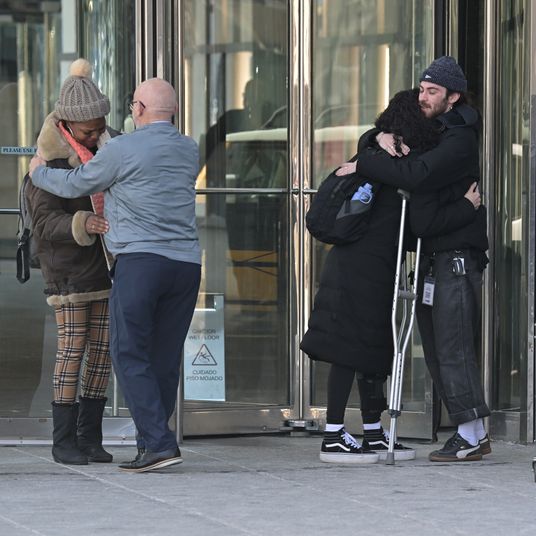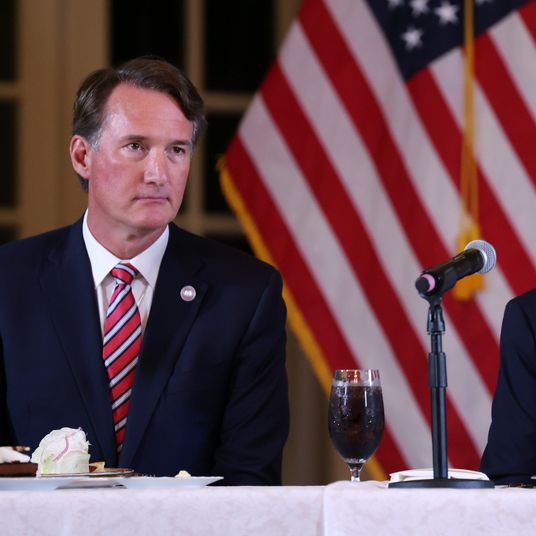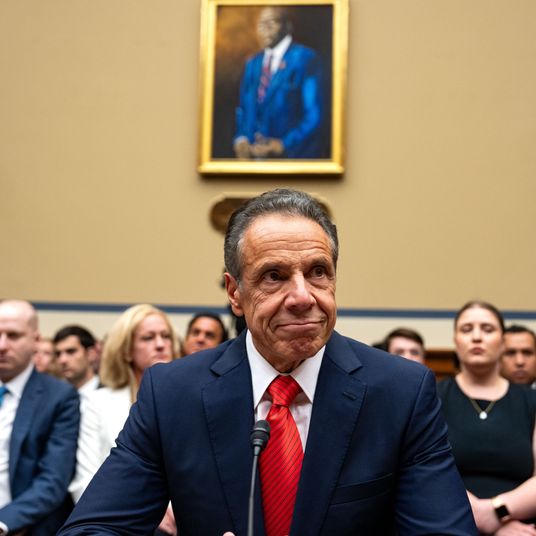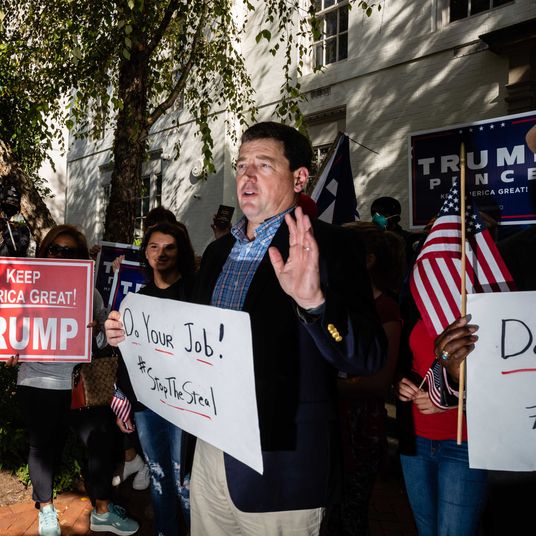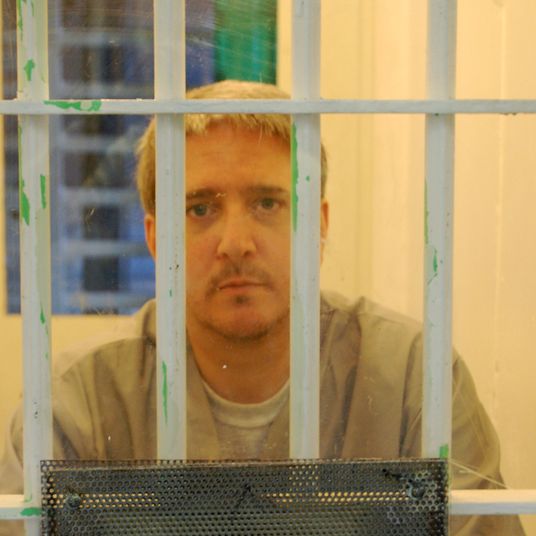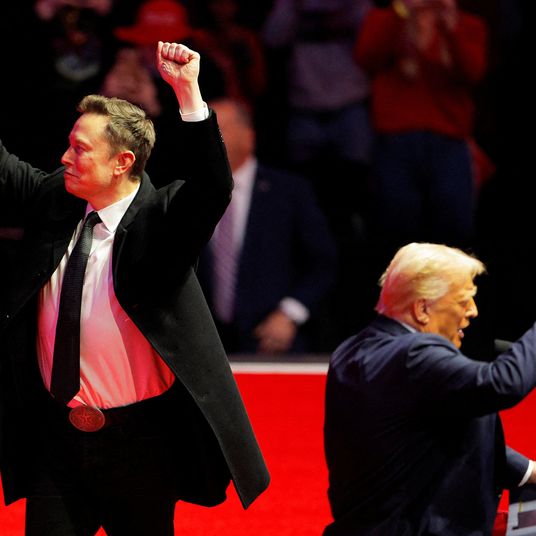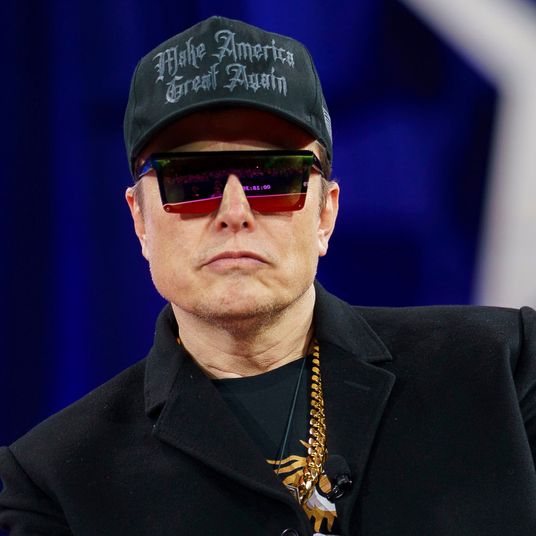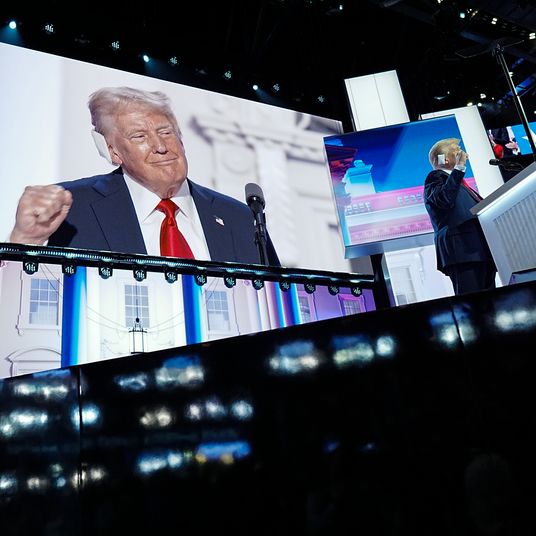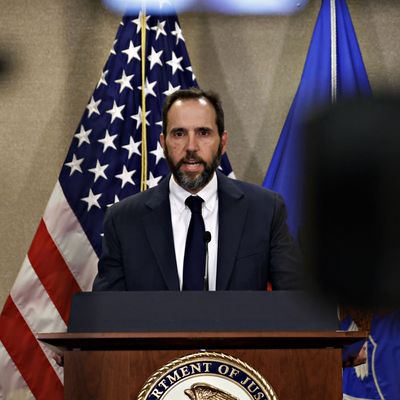
Donald Trump has once again handed his Republican apologists an unenviable assignment.
The Justice Department charged the ex-president last Thursday with willfully retaining national security secrets in violation of the Espionage Act and conspiring to obstruct justice. According to the indictment, Trump:
• Retained top-secret documents detailing U.S. nuclear secrets, military vulnerabilities, and plans for retaliating in the event of an attack.
• Left such documents in boxes inside his Mar-a-Lago club’s ballroom, even as large gatherings were held within it.
• Was caught on tape showing secret U.S. battle plans to private citizens, admitting as he did so that the plans had not been declassified.
• Moved boxes of secret documents out of a storage room so his lawyer would not find them when he came to collect papers that needed to be returned to the National Archives in compliance with a subpoena.
• Asked an attorney to hide or destroy any “really bad” documents that were in his possession instead of returning them to the government in compliance with the subpoena.
Pro-Trump conservatives are therefore faced with the daunting task of explaining why it is actually good for an ex-president to illegally keep U.S. atomic secrets lying around his club, show off secret military plans to friends as if they were souvenirs, and then refuse to return those documents upon the government’s request.
Of course, by now, Republicans are well versed in the art of Trump apologetics, so they know better than to try to defend the mogul’s actions on the merits. Rather, they have reverted to a time-honored alternative to justifying the unjustifiable, arguing that whatever Trump did or did not do, his accusers are politically motivated and hypocritical and that is the real scandal.
As House Speaker Kevin McCarthy explained to Fox News on Friday,
Trump’s indictment is “going to disrupt this nation because it goes to the core of equal justice for all, which is not being seen today. And we’re not going to stand for it.” Senator Lindsey Graham put the point more directly in an interview with ABC News Sunday, saying, “Most Republicans believe we live in a country where Hillary Clinton did very similar things and nothing happened to her.” Other Republicans have claimed Joe Biden is guilty of conduct legally indistinguishable from Trump’s.
Thus, conservatives contend, Trump’s indictment reflects the politicization of federal law enforcement: President Biden ordered an indictment of his top political rival as though it were a takeout meal, and the Justice Department delivered, even though Trump had done nothing more unlawful than Clinton, Biden, Mike Pence, or countless other politicians had.
This claim has political traction. An ABC News–Ipsos poll released Sunday found that 47 percent of Americans believe the charges against Trump are “politically motivated” while only 37 percent believe they are not.
In reality, however, the notion that the DOJ is selectively prosecuting Trump for political reasons is not merely wrong but the very opposite of the truth: As a matter of fact, the federal government has been affording Trump extraordinary leniency, likely as a product of political considerations.
To appreciate this, it is helpful to contrast the DOJ’s treatment of Trump with its handling of Asia Janay Lavarello, a former civilian employee of the Defense Department.
In 2020, Lavarello was on assignment at the U.S. Embassy in Manila, where she had been researching a classified thesis. Her work drew on other scholarly research that was also classified. She had been conducting the research in a secure information facility at the embassy until COVID-19 shut it down. Shortly thereafter, she brought three classified theses back to her hotel room. That night, she held a dinner party at which a guest discovered the classified documents and confronted her about them. She returned the documents to a safe at the embassy two days later but failed to return them to the secure information facility specifically. For this, the DOJ charged Lavarello with unauthorized retention of classified documents and sought to put her in prison. Ultimately, they reached a plea bargain that put her behind bars for three months.
Compare this to the conduct for which the DOJ did not charge Trump: Upon leaving office, the ex-president brought more than 300 highly classified documents to his private residences, including top-secret materials detailing atomic secrets and national security vulnerabilities; he retained these documents for about a year despite government requests for him to return them. His own public statements indicate that his retention of those documents was willful, and he repeatedly expressed a sense of entitlement to their possession, saying that, as president, he had the power to declassify those materials “even by thinking about it.”
Nevertheless, as late as January 2022, the Justice Department was still giving Trump the opportunity to avoid charges by returning the documents he had taken. The indictment released last week makes this point clear.
In January of last year, Trump returned 197 classified documents to the federal government. Despite his willfully retaining those documents for months, the federal indictment released last week does not charge Trump in connection with any of them — which is to say, the DOJ gave Trump a pass on 197 potential counts of willful retention of national defense information. Instead, it charged him with only 31 counts, each corresponding with a highly classified document that Trump knowingly withheld from the government in January 2022 and the FBI later obtained.
To review: Lavarello removed three classified dissertations from a secure information facility amid a pandemic that prevented her from accessing that facility. She kept the documents in her hotel room and did not deliberately show them to anyone. She then voluntarily returned them to a locked safe at the embassy within a matter of days. The DOJ chose to charge her and seek a prison sentence.
Trump, meanwhile, removed 197 highly classified defense documents from the White House. There is reason to believe he might have shared some of those documents with private citizens since he has been caught on tape sharing other highly classified documents in his possession with friends. He refused initial requests to return the documents, and he retained them for about a year. The DOJ chose not to prosecute him for doing so since he did eventually return them.
There is no substantive reason why Lavarello’s removal of three classified dissertations from an embassy for a few days deserves to be punished more harshly than Trump’s retention of 197 highly classified documents for months. It is clear, therefore, that the Justice Department prosecuted the ex-president much less aggressively than it would an ordinary citizen under the same circumstances. To the extent that political considerations influenced the DOJ’s handling of the case, they led the department to extend Trump extraordinary opportunities to extricate himself from legal peril so as to avoid the politically inflammatory spectacle of his prosecution.
Of course, for conservatives, the relevant comparisons for Trump’s case are those of Biden and Clinton.
Last year, roughly a dozen classified documents were found at a think-tank office Biden had used during the Trump years. A small number of additional documents were found at his Wilmington, Delaware, home. Contrary to conservatives’ claims, however, there is no evidence that the Justice Department has extended Biden greater leniency for these improprieties than it afforded Trump.
For one thing, the Justice Department hasn’t even made a decision in Biden’s case yet. The DOJ and Special Counsel Robert Hur are presently investigating it. More critically, there is as of yet no evidence that Biden willfully retained these documents (as opposed to losing track of a few of the myriad classified documents he handled during his time as vice-president) nor that he deliberately withheld any documents after the government requested their return. This means, based on the current public record, that Biden’s retention of classified materials appears less egregious than Trump’s retention of the 197 documents he was not charged for retaining. It is conceivable that new information will change our understanding of Biden’s case, but at present, were the DOJ to charge the president for retaining classified documents, it would be holding Biden to a radically higher standard than his predecessor in a manner that would bespeak political bias.
The idea that Trump is guilty of nothing Clinton didn’t do is similarly baseless. The conservative narrative on this point goes (roughly) like this: In 2016, then–FBI director James Comey concluded that Clinton’s discussion of classified information over a private email account and server during her time as secretary of State constituted “potential violations of the statutes regarding the handling of classified information,” but he insisted that “no reasonable prosecutor would bring such a case” given the relevant evidence and context. Yet, conservatives argue, when the FBI uncovered evidence of similar violations committed by Trump, “reasonable” prosecutors decided not to extend him the same charity.
Any resemblance between the Clinton and Trump cases is wholly superficial. Clinton did not willfully retain classified documents; she discussed classified information over a private email account. When the government asked Clinton to hand over all work-related emails sent from her personal account, she and her lawyers made a good-faith attempt to do so. Her lawyers did famously delete 30,000 emails they had deemed personal and not work related, and some of those turned out to include work-related material. Trump evidently saw this as analogous to withholding select classified materials from the government, suggesting his lawyer should emulate Clinton’s and cover for his obstruction of justice the way Clinton’s lawyer had kept her out of trouble “because he said that he was the one who deleted them.”
Yet as Comey stated in 2016, there is no evidence that Clinton’s deletion of work-related emails was intentional. It was not logistically feasible for her lawyers to read every single one of the thousands of emails sent from her account. Instead, they sought to screen for work-related materials by using various search terms, and some ended up falling through the cracks. Clinton’s team would have had little incentive to deliberately withhold relevant emails since any message she sent to other government officials would be recorded on their own government email accounts. This is indeed how the FBI found many of the missing messages.
Most important, Comey’s rationale for not charging Clinton was that the government did not typically prosecute such mishandling of classified information unless it involved “clearly intentional and willful mishandling of classified information” or “efforts to obstruct justice.” They found no “clear evidence that Secretary Clinton or her colleagues had intended to violate laws governing the handling of classified information” or attempted to obstruct justice. One implication of Comey’s remarks was plain: The government would normally prosecute someone for mishandling classified information if it did possess evidence that their lawbreaking was intentional and/or that they had attempted to obstruct an investigation.
If conservatives truly wanted the DOJ to uphold the standard Comey set in 2016, they would want the Justice Department to prosecute Trump. After all, according to last week’s indictment, the government possesses evidence indicating that Trump knowingly violated the law (as he explained on tape that the documents in his possession had not been declassified) and obstructed justice (as he attempted to hide boxes of documents from his own lawyers and asked them to destroy “really bad” ones).
Lavarello may have cause for believing her prosecution was unfair in light of the DOJ’s leniency toward Clinton. But Trump does not.
The sad, strange truth of Trump’s case is that the Justice Department tried to let him get away with a crime but the ex-president would not let it. Rather, he tore up his “get out of jail free” card so flamboyantly that the DOJ had little choice but to bring charges.







